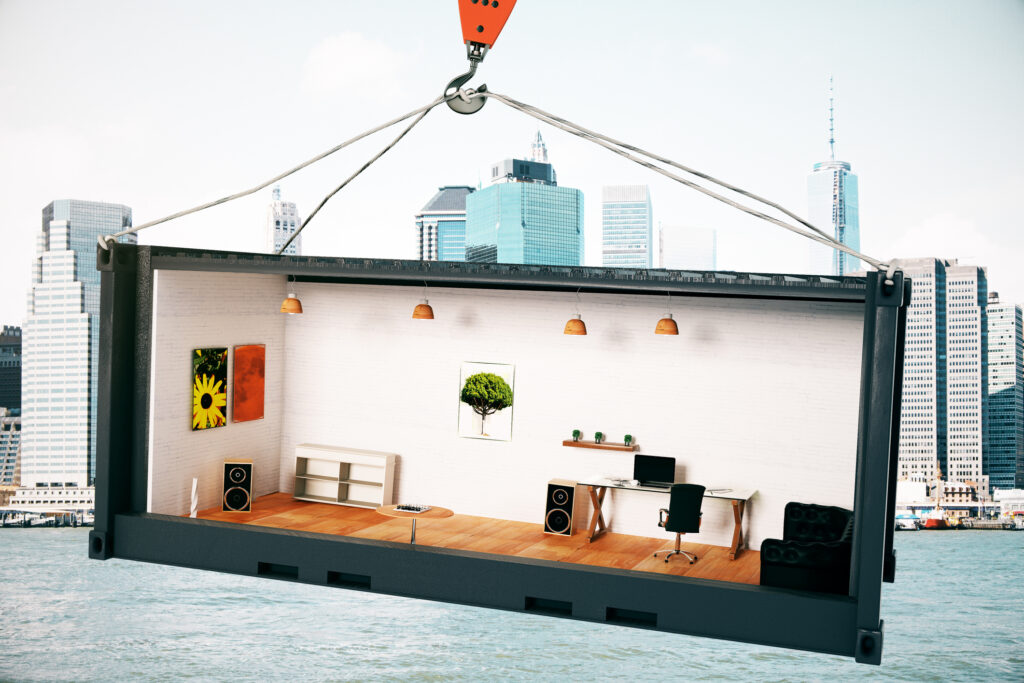
There are many reasons why schools may need shipping container classrooms, lunchrooms and locker rooms. Perhaps they don’t have the physical space required to accommodate their student population. Or maybe the school has recently undergone budget cuts, unexpected damage from extreme storms, or the closure of nearby schools which is forcing them to accommodate more students than they can realistically handle.
Whatever the case, administrators are now faced with reconfiguring their existing space and coming up with more creative, yet affordable, ways to meet the needs of the student population. This is why shipping container classrooms are such a great idea in communities across the country. Not only are they innovative and cost-effective, they’re a convenient way to add square footage in emergency situations.
Affordable and Transportable Solutions
Not only are these containers quick to set up and mobile, they can be modified with heating and AC depending on the season. Several can be stacked together vertically, or laid out in a line horizontally. And oftentimes, when you see the finished project, you can’t even tell that shipping containers were used to construct the extra space.
The walls of shipping containers are crafted of steel, which makes them extremely strong and durable. You’ll also save a lot of money using containers than if you were to construct a traditional building from the ground up. Implementing an environmentally friendly expansion can add thousands or even tens of thousands of square feet of classroom space.
Solutions
Portable shipping containers can offer schools storage solutions for things like sports equipment, extra classroom furniture, instruments, and laptops. They’re easy to secure and relocate, allowing elementary schools, high schools and colleges to scale up the resources that they make available to the students.
There are many ways you can modify a shipping container. You can convert them into:
- Lockers and benches
- Shelves
- Overhead roll-up doors
- Climate control
- Custom racks for weights and athletic equipment
- Ventilation
- Personnel doors
- Overhead lighting
You can utilize them for many purposes to deal with lack of space elsewhere, such as lunchrooms, classroom overflow, locker rooms, equipment sheds, garages for grounds keeping equipment like riding mowers, and school and sports field storage.
Benefits of Shipping Container Schools
There are many benefits to shipping container schools.
1. They’re Flexible
The containers can be customized off site ahead of time so they arrive ready to use for a specific purpose.
2. They’re Affordable
Shipping container schools will cost half of what traditional construction costs per square foot.
3. They Can be Put Together Fast
Shipping container builds are very time efficient, as many are pre-fabricated so they can be delivered quickly.
Rather than put up with cramped conditions in a school – something not feasible during a pandemic – it’s smart to invest in shipping container schools.
Frequently Asked Questions About Container Uses for Schools
Do shipping containers make good workshops?
They definitely do. Shipping containers are often transformed into effective workshops due to their:
- Durability: Originally made for rough sea conditions, they withstand significant wear and tear.
- Security: Thick steel walls provide a secure environment for valuable tools.
- Modularity: Multiple containers can be combined to expand workshop space.
- Portability: Easily relocatable, they suit temporary or project-based sites.
- Cost-Efficiency: Often more affordable than constructing a traditional workshop.
Are shipping containers fire retardant?
Shipping containers themselves are not fire retardant, as they’re primarily made of steel, which can transfer heat. However, with the right internal modifications, like insulation and fire-resistant drywall, their fire resistance can be improved. Always check with local fire codes and safety regulations when adapting containers for various uses.
What is a container classroom?
A container classroom is made by converting one or more shipping containers into an educational space. These spaces are becoming popular due to their cost-effectiveness, portability, and flexibility, especially in areas requiring temporary or expandable educational facilities.
What is container licensing?
Container licensing pertains to the necessary permissions, certifications, or licenses to manufacture, sell, modify, or utilize shipping containers for specific purposes, such as housing or commercial spaces. Local and state licensing ensures containers meet specific safety, quality, and regulatory standards.
Contact Aaron Supreme
Aaron Supreme would be happy to help connect you with a shipping container for school use. To get a free quote and to learn more, contact us at 800-243-0403.



